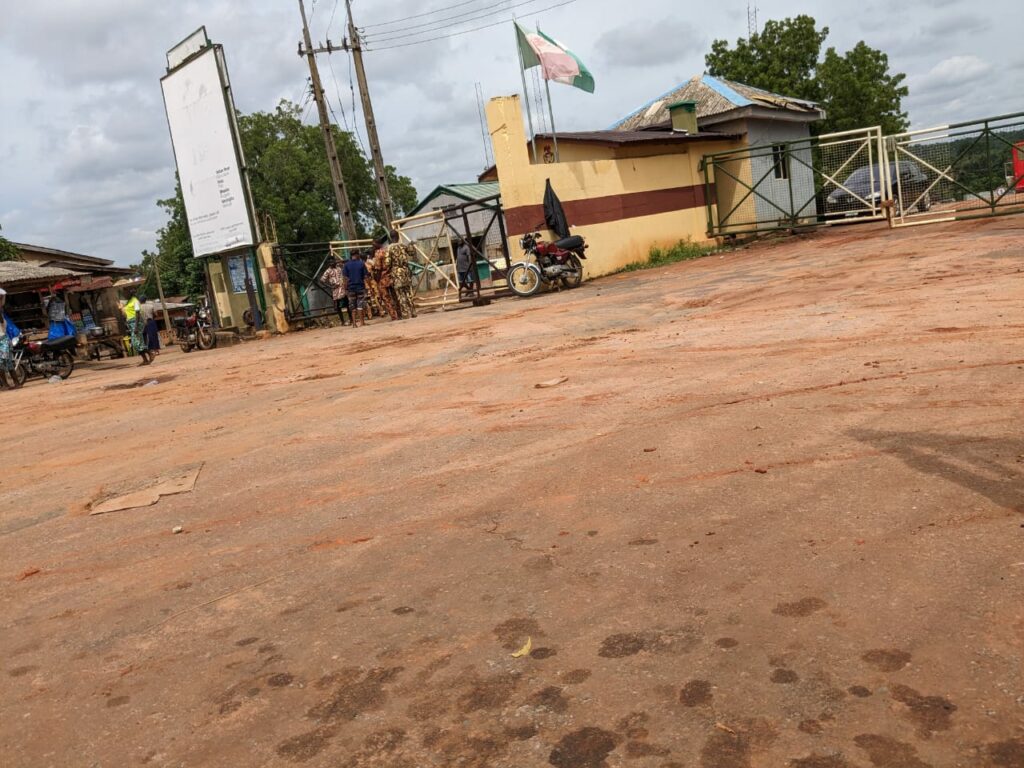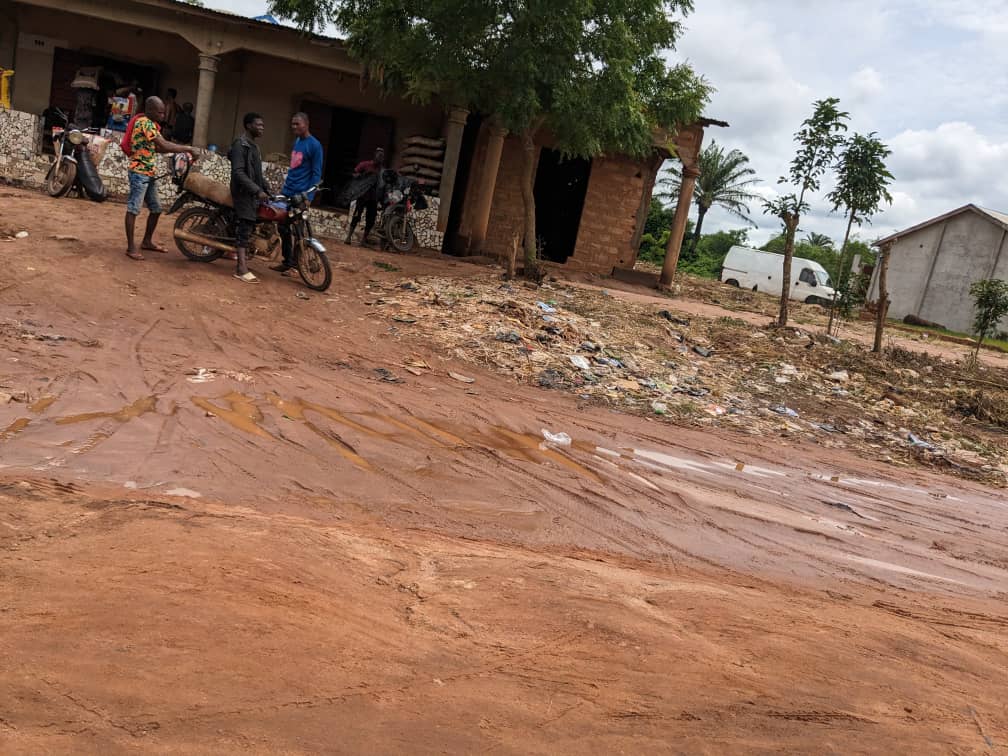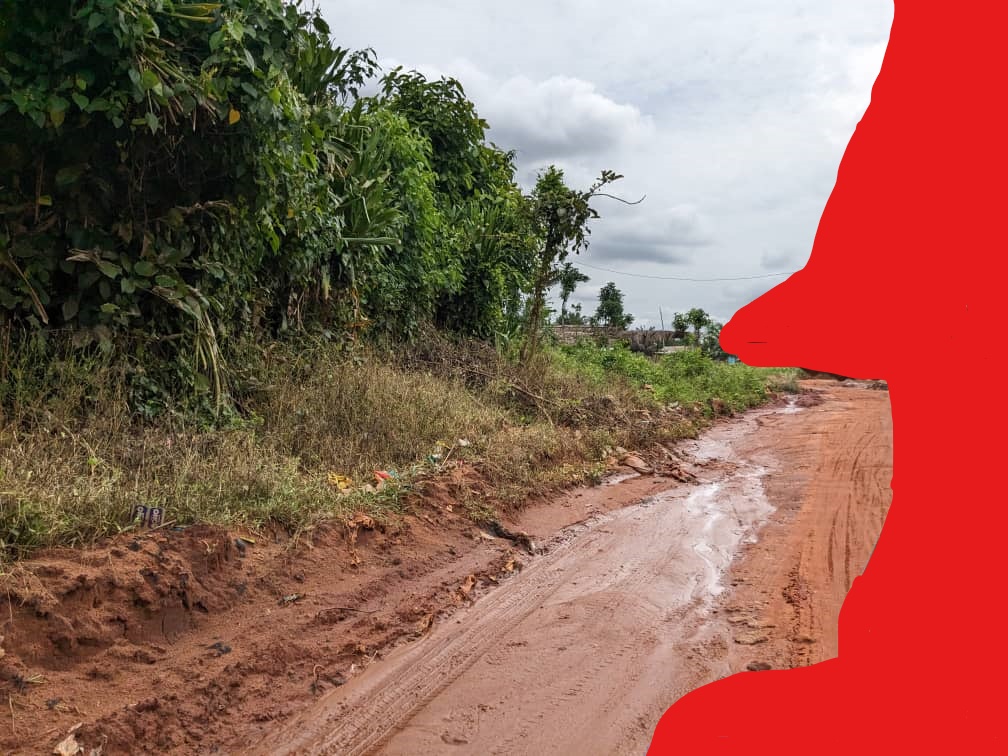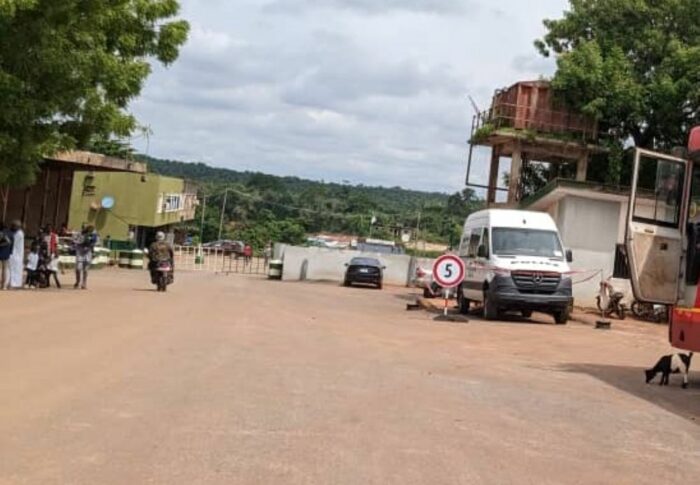The truth about the subsisting border closure in Nigeria is that it leaves no one unaffected. The price of almost every commodity has gone up since the order, and as a result, everyone puts their ears to the ground to know when the new government will open the locks and keys put on the country’s land borders by the administration of Muhammadu Buhari, the immediate past President of Nigeria.
A video clip went viral on social media some days ago showing Nigerian Customs Service officers at the Idi-Iroko border in Ogun State opening a gate. According to those sharing the video, it was evidence that the new president had opened Nigeria’s land borders. The footage was misleading in the sense that there was no information from the government about a land border opening.
Curious, I dashed out of my home to Idi-Iroko, a borderland between Nigeria and the Republic of Benin, before dawn on Thursday.

Oderinde Omoola,* a commercial motorcyclist, appeared to be on the lookout for a potential passenger while standing alone under a makeshift shop some distance away from the entry point at the border area.
His open-mindedness made him a right source for me to interview while trying to find out how things work at the border.
‘IT WAS AN OLD VIDEO‘
As I was approaching the border entrance, I noticed some energetic young motorcyclists lousily haggling with customers at the gate of the border. The border has two gates. The gate on the right side was padlocked, while one of the slides of the gate on the left side was open, giving access to motorcycles, vehicles and people.

I looked around and sighted Omoola. For him, it was a dull business day because cross-border passengers weren’t coming through. He had been standing alone with sealed lips, and it was not difficult for me to strike a conversation with him.
In response to my question on whether the border had been opened, his answer was in the negative.
“Nothing has changed with border closure here. It is only open to human passage and not for goods. You might have seen a video claiming it had been opened. It’s a lie. It was an old video,” Omoola, who has been doing cross-border transportation for some years, told me.
“We cannot wait for the border to be opened as it holds the key to our comfortable living. If it is opened, it would enable us to bring in cars from Benin and food commodities through a legitimate route. But as it is now, what we are doing is an illegal business.
“Since the legal circuit was shut, our only channel has been Bebe, a Benin community on the borderline, and other jungles. Every deal on this way is well sanctioned by customs officials, but it remains a backdoor system since the border has not been opened.
“You needed to see how many of our customers were calling to ask if the information conveyed in the old video was true. People are anxious to see how Tinubu would handle this situation. While we are optimistic, we don’t know when the president would turn his attention to the closure policy.”
A TRIP THROUGH THE NEEDLE’S EYE
Omoola, my newfound friend, and I struck a deal to see what’s obtainable in the jungle through which smugglers import and export goods in violation of the government’s order.

On the Nigerian side of the border, there were three-gated spots manned by customs officials. Without much ado, we were passed, and we proceeded to the Beninoise side.
It was entirely an easy ride for us passing through the Beninoise entry point. Omooola told me to walk pass the walkway while he rode his motorcycle through the gate.

We rode on Omoola’s motorcycle on the main lane connecting Nigeria and Benin for about two minutes before dropping off to an unpaved, muddy road on the right side. This is a road where smugglers import and export goods to beat the official position of the government.
Bebe community was a beehive of activities for traders and residents. I saw loaders with some heavy-duty vehicles loading goods to be smuggled into Nigeria at night.

According Omoola, a bag of rice was sold at N26,000 in Bebe and one could buy as many as possible. However, there are villages farther from Bebe where rice is cheaper.
“If you are interested in the business, I can take you through the process seamlessly. Here in Bebe, a bag is N26,000 at the moment. But that may be pricey for you as a businessman. I can take you to other villages where you can get it very cheap,” he said.
“To move a bag of rice across this route to Sango market, Ogun State, you would pay between N5,000 and N8,000.”

Until we left the jungle about 11:30 am, the presence of breezy palm trees, shadows and overhanging fruit failed to completely take safety fears out of my mind.
N150,000 PER ‘PASS’ FOR 50 BAGS OF RICE
While returning home, I boarded the same tricycle with Iya Ade*, a foodstuff wholesaler in Sango market.
From discussion about the forthcoming Eid-el Kabir festival to border closure, Iya Ade spoke to me extensively about her business model.
“On Tuesday, no fewer than 100 vehicles of different capacities brought commodities into Nigeria through the border. That volume was very unusual. I was very elated to have my 100 bags of rice delivered by my major supplier,” Iya Ade said.
READ ALSO: How Former Lawmaker Akintayo Amere ‘Sold’ Constituency Project After Leaving Office
“Before now, customs officials were stricter with such a deal. It is now smoother than it had ever been in recent times. Of course, customs and immigration men issue traders passes to get goods into Nigeria. A pass for 50 bags of rice costs N150,000. So, the more one’s goods are, the more the number of passes one would pay for.”
Back at the border, Omoola had earlier told me that there were specific days of the week when smugglers, backed by NIS/NCS-issued licenses, brought in trade articles. “We worked smoothly on Tuesday night. Friday and Saturday is another time. Once we start by 12 am, it is always non-stop till we hear the Muslims’ early call to prayer.”
Former President Muhammadu Buhari ordered the closure of the country’s land borders in August 2019.
Editor’s note: Names of the sources have been changed to secure their identities.
Subscribe
Be the first to receive special investigative reports and features in your inbox.






















